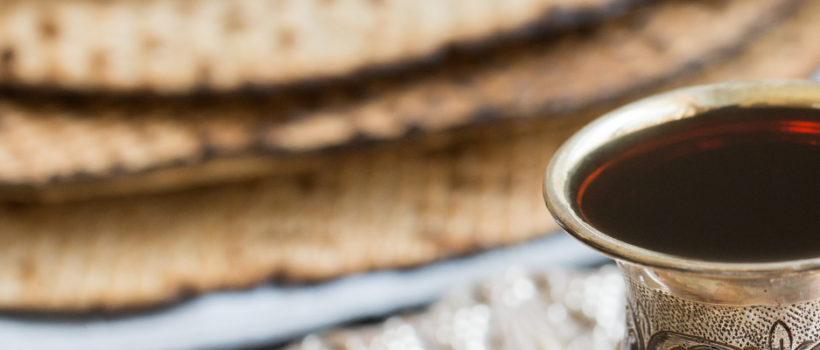A Time for Charoset

The Chief Rabbi’s Pesach Message 5783
The maror we eat during the Seder represents not only the suffering of our ancestors in Egypt, but also the inescapable presence of bitterness in every person’s journey through life. What we do with the maror is therefore a powerful expression of our Jewish response to suffering.
By reciting a beracha over the maror, we acknowledge that blessing is to be found in the midst of the curse. Dipping the maror into charoset, a sweet paste of wine, nuts and fruit, we emphasise the bitter-sweet nature of life and the silver lining that every dark cloud has.
While the pessimist bemoans the bitterness that spoils our sweet experiences, the optimist celebrates the sweetness that softens the sharp edges of bitterness in our lives and provides us with opportunities for a life of hope and joy.
The 19 th century German scholar, Rabbi Shimshon Raphael Hirsch, gave a most profound interpretation of King David’s desperate cry (Psalm 22:2)
Keli Keli, lama azavtani? – My God, my God, why have You forsaken me?
Rabbi Hirsch points out that the Hebrew lama (why?) can also be read as lema (wherefore?). King David was calling out Heavenwards: For what purpose, God, have you given me this agony? What must I now accomplish as a result of it? On Pesach, we recall that the Korban Pesach, the Paschal Lamb offering, had to be a lamb, which was deified by the Egyptians. We took the very essence of idolatrous practice and used it to thank Hashem for redeeming us. A similar message is conveyed by our production of matzah, which must be made from grains, which, when fermented, become chametz. What can spoil our festival is used to celebrate it!
Viktor Frankl, the Austrian psychiatrist and Holocaust survivor, believed that suffering is an inescapable part of human life, which can be given meaning and purpose according to the way we choose to respond to it.
This is the spirit in which our communities have responded so admirably, with tenacity and determination, to move forward positively following the Covid pandemic. Yet, the world today still feels particularly fragile and precarious.
The impact of the Russian invasion of Ukraine, a cost-of-living crisis and serious mental health issues have devastated numerous lives. On my visits to communities around the UK, I have been deeply impressed by the way in which communities have adapted and responded to such extraordinary adversity, often enhanced by funding from our Project Welcome initiatives. Today, countless communities provide unprecedented levels of support for the financial, emotional and psychological needs of their members.
So, this Pesach I would like to thank you all for your wonderful communal achievements, which have been accomplished under the most trying of circumstances. Thank you for adding the charoset to our maror!
Valerie joins me in wishing you all a Chag Kasher Vesameach.
Chief Rabbi Ephraim Mirvis

